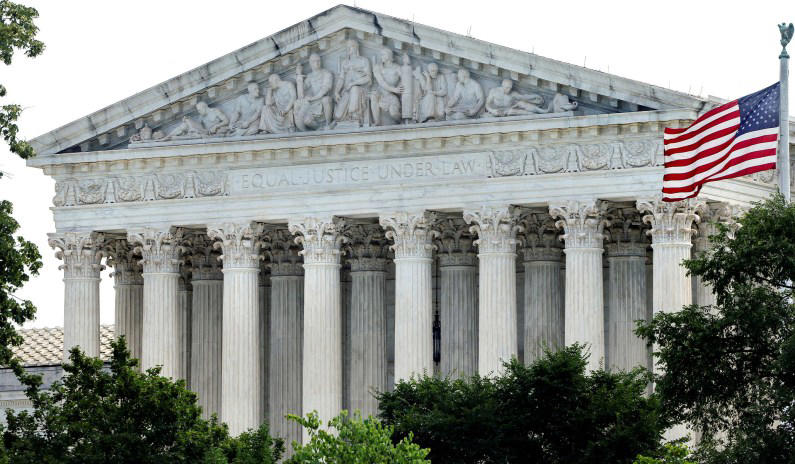The Administrative State Is Put Back in Its Constitutional Place

A view of the U.S. Supreme Court building in Washington, D.C., June 17, 2024.
Scarcely anything was more central to the people who framed our Constitution than the separation of powers. John Adams, in the Massachusetts Constitution of 1780, wrote that it was designed “to the end it may be a government of laws, and not of men.” It was a topic upon which the men who gathered at Philadelphia in 1787 were effectively unanimous, having already incorporated it in the constitutions of their several states. Even more so than federalism, individual rights, or enumerated and limited powers, it was the separation of lawmaking, law-enforcing, and law-interpreting powers that they saw as the safeguard against the erosion of all the other elements of the constitutional system. And at the tip of the spear of the law, they placed the jury system, giving a share of the judicial power to ordinary citizens.
This system has always had its critics. The framers of the Confederate constitution of 1861 watered it down in their own version. Woodrow Wilson and other Prussian-inspired intellectuals thought it was old-fashioned, inefficient, and an obstacle to rule by modern experts. Wilson’s heirs to this day defend the bureaucratic administrative state, which interprets its own laws, runs its own courts, and is insulated from removal by the executive.
Americans in many walks of life have found themselves ensnared in these institutions, which are frequently immune to elections and unconstrained by written law. That includes the fishermen in Loper Bright Enterprises v. Raimondo, who found themselves saddled with the cost of regulatory monitors traveling on their fishing boats — even though Congress never passed a law making them pay that cost.
The Supreme Court has struck a series of powerful blows against this system. In SEC v. Jarkesy, it ruled that the Seventh Amendment right to a jury trial in civil cases cannot be evaded in cases brought by a government agency simply by the expedient of assigning them to an administrative law judge employed by the same agency. In Loper Bright Enterprises v. Raimondo, it struck down the Chevron doctrine, which allowed agencies not only to interpret ambiguities in their own statutes but to demand that courts defer to those interpretations.
Ending Chevron has been a long-term project of constitutionalists. The doctrine, minted only in the mid 1980s, never sat comfortably with the traditional power of the judiciary to, in the words of Chief Justice John Marshall, “say what the law is.” Nor was it consistent with the Administrative Procedure Act, passed in 1946, which provided that a court reviewing agency action must “decide all relevant questions of law” and “interpret” the relevant “statutory provisions.”
Neither of these decisions prevented the agencies from exercising powers explicitly granted by Congress, or from pursuing cases that could stand up in court. So the alarms about crippling administrative power are overstated. Nor were these decisions, as the Court’s liberals would have it, a judicial “power grab.” Jarkesy requires judges to share power with juries, and Loper Bright restores the proper primacy of Congress. And the Court has taken this course while ruling, in Erlinger v. United States, that criminal sentencing judges must also yield to juries the power to find facts that increase a sentence.
The Court also brushed back an overweening Environmental Protection Agency rule, in Ohio v. EPA, that ran roughshod over a congressional design to share responsibility for air quality between the EPA and the states. And it has one further case left, Corner Post v. Board of Governors of the Federal Reserve System, that could give regulated parties more time to bring challenges to unlawful rules.
All of this is not only good but necessary and healthy for a democratic and constitutional system. If it provokes in Congress the habit of writing laws, and in agencies the habit of obeying them, all the better. Agencies are but creatures of law, and law is but a creature of the sovereign people’s right to self-government — a government of laws, and not of men.
More on National Review
